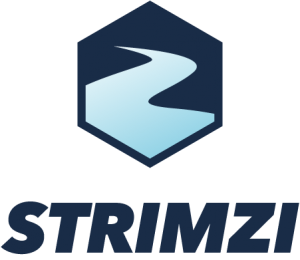Cross-posted from the Developers Blog. See the session at Red Hat Summit on Apache Kafka and AMQ data streams on Thursday, May 10, at 11:15.

We are excited to announce a Developer Preview of Red Hat AMQ Streams, a new addition to Red Hat AMQ, focused on running Apache Kafka on OpenShift.
Apache Kafka is a leading real-time, distributed messaging platform for building data pipelines and streaming applications.
Using Kafka, applications can:
- Publish and subscribe to streams of records.
- Store streams of records.
- Process records as they occur.
Kafka makes all of this is possible while being fast, horizontally scalable and fault tolerant. This makes Kafka suitable for a large range of use cases, including website activity tracking, metrics and log aggregation, stream processing, event sourcing, and IoT telemetry. The forthcoming AMQ Streams product will provide Red Hat customers with a supported offering for running Apache Kafka on Red Hat Enterprise Linux and on Red Hat OpenShift Container Platform.
As more and more applications move to Kubernetes and OpenShift, it is increasingly important to be able to run the communication infrastructure on the same platform. OpenShift as a highly scalable platform is a natural fit for messaging technologies such as Kafka. But with AMQ Streams, our target is not to just run Apache Kafka on OpenShift, but rather AMQ Streams makes running and managing Apache Kafka “OpenShift native.”
Uniting the massive scalability of Kafka on an elastic platform like OpenShift involves resolving a number of technology challenges:
- Kafka brokers are inherently stateful, because each has its own identity and data logs that must be preserved in the event of restarts.
- Updating and scaling a Kafka cluster requires careful orchestration to ensure that messaging clients are unaffected and no records are lost.
- By design, Kafka clients connect to all the brokers in the cluster. This is part of what gives Kafka its horizontal scaling and high availability, but when running on OpenShift, this means the Kafka cluster cannot simply be put behind a load-balanced service like other services. Instead services have to be orchestrated in parallel with cluster scaling.
- Running Kafka also requires running a Zookeeper cluster, which has many of the same challenges as running the Kafka cluster.
AMQ Streams simplifies the deployment, configuration, management and use of Apache Kafka on OpenShift using the Operator concept, thereby enabling the inherent benefits of OpenShift, such as elastic scaling. An Operator is an application-specific controller that extends the Kubernetes APIs and combines them with domain-specific knowledge and makes it easy to run and manage complex applications. Developers and administrators used to OpenShift’s declarative approach to resource provisioning can now enjoy those same benefits when working with Kafka, Kafka Connect, and Kafka topics.
AMQ Streams makes it easy to:
- Deploy a complete Kafka cluster, at the scale that suits you, with the click of a button or with a single
oc createcommand. - Deploy the Kafka topic right alongside the microservice that uses it.
- Scale up the partitions of that topic.
- Trivially scale up and and down the Kafka cluster according to load.
AMQ Streams is optimized for running on OpenShift (as opposed to regular Kubernetes). Not only does it benefit from Red Hat’s years of experience and in-depth knowledge gained from developing and running OpenShift, but there is, for example, special support for building Kafka Connect clusters with the user’s own Kafka Connect plugins. Further, OpenShift-specific features and Red Hat product integrations are anticipated, with the overall aim being a seamless experience with full support from the OpenShift fabric up.
Unsurprisingly, because Red hat is the world’s leading provider of open source technologies for the enterprise, AMQ Streams is fully open source and based on the Strimzi project.
The Developer Preview, which is being made available to interested customers this week, provides the foundation for running Kafka on OpenShift. Interested customers and other interested parties are invited try it out, give us their feedback and, if desired, collaborate on the open source Strimzi project to help shape the future direction of AMQ Streams on OpenShift.
If you’re lucky enough to be in San Francisco this week for Red Hat Summit, then you can hear a lot more about AMQ Streams (and the broader Red hat AMQ product) at the following sessions:
- Running data-streaming applications with Kafka on OpenShift
Tue May 8, 1:00 PM–3:00 PM, Moscone South 156
Marius Bogoevici, Paolo Patierno, Gunnar Morling [L1099] - Red Hat AMQ overview and roadmap
Wed May 9, 11:45 AM–12:30 PM, Moscone West 2011
David Ingham, Jack Britton [S2802] - Introducing AMQ Streams—data streaming with Apache Kafka
Thu May 10, 11:15 AM–12:00 PM, Moscone West 2014
Paolo Patierno, David Ingham [S1775] - Red Hat AMQ Online—Messaging-as-a-Service
Thu May 10, 1:45 PM–3:45 PM, Moscone South 214
Ulf Lilleengen, Paolo Patierno [W1098]
We expect to release further previews as we iterate towards the general availability release, which is planned for later this year.
Please give it a try and let us know what you think.
Sull'autore
Deon Ballard is a product marketing manager focusing on customer experience, adoption, and renewals for Red Hat Enterprise Linux. Red Hat Enterprise Linux is the foundation for open hybrid cloud. In previous roles at Red Hat, Ballard has been a technical writer, doc lead, and content strategist for technical documentation, specializing in security technologies such as NSS, LDAP, certificate management, and authentication / authorization, as well as cloud and management. She also wrote and edited the Middleware Blog for Red Hat and led portfolio solution marketing for integration and business automation.
Altri risultati simili a questo
Evolving our ServiceNow integration: Sunsetting the Notification Service for more capable alternatives
Beyond the horizon: Navigating the bridge between today's tech and tomorrow's AI
Communicating the Value of Connecting Systems | Code Comments
Ricerca per canale
Automazione
Novità sull'automazione IT di tecnologie, team e ambienti
Intelligenza artificiale
Aggiornamenti sulle piattaforme che consentono alle aziende di eseguire carichi di lavoro IA ovunque
Hybrid cloud open source
Scopri come affrontare il futuro in modo più agile grazie al cloud ibrido
Sicurezza
Le ultime novità sulle nostre soluzioni per ridurre i rischi nelle tecnologie e negli ambienti
Edge computing
Aggiornamenti sulle piattaforme che semplificano l'operatività edge
Infrastruttura
Le ultime novità sulla piattaforma Linux aziendale leader a livello mondiale
Applicazioni
Approfondimenti sulle nostre soluzioni alle sfide applicative più difficili
Virtualizzazione
Il futuro della virtualizzazione negli ambienti aziendali per i carichi di lavoro on premise o nel cloud

